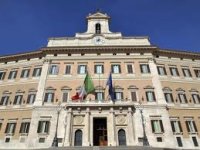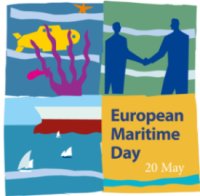How to take the Common Fisheries Policy reform forward?

Hearing at the Italian Parliament
Rome, 15 March 2012
Commissioner Maria Damanaki presented the proposals for the reform of the EU Common Fisheries Policy in the framework of the hearing organised by the Italian Parliament.

Dear Senators, dear Members of Parliament,
I am grateful for the opportunity to meet with you today and talk about how we can take the Fisheries Reform forward.
This country is innovative in many ways. For instance, in the film "Terraferma", your comedian Fiorello plays the son of an old fisherman.
"Why are we wasting time, Dad?" – Fiorello asks his father.
"There's no fish in the sea anymore. Let's transform the boat. Let's take tourists around the island."
A very clever idea. Italy has practically invented 'pescaturismo' and 'ittiturismo' – two concepts that we are now trying to extend to other parts of Europe. I will come back on this and on other concrete funding measures for fishermen later. But my point is that Italy is looking forward.
If I'm here today it is to ask you to continue to do so. Because without Italy there can be no sustainable fishing in the Mediterranean.
We have worked together with Minister Catania for the reform plan I have tabled; but of course I have also read the Senate's opinion, so I know that we agree on the objectives, but we don't always agree on how to get there.
We agree that we need environmental, economic and social sustainability.
For environmental sustainability, we need to bring our stocks to Maximum Sustainable Yield by 2015 and phasing out discards.
This can bring economic sustainability: only by restoring our fish stocks, we will be able to offer adequate catches and an adequate income for fishermen. I have concrete proof of this, because in the past two years we have started to reap the benefits of the sustainable management of the previous years. In the Northern fishing grounds of the EU, we have now increased quotas, and the fishermen will have an extra 135 million euro in their pockets. I want the same for the Mediterranean. We have figures from the New Economics Foundation proving that if we reach MSY we can have 25-30% increase of the income of our fisheries and 80 000 more jobs in the sector by 2022.
And this brings us to social sustainability: the Italian industry has formidable know-how, and we must empower fishermen to bring it into the everyday management of fisheries. They also deserve proper support to switch to sustainable practices and adequately market their products.
The Senate would want more flexibility on the targets for MSY in the Mediterranean. But if we are to achieve sustainable levels for all the stocks, we must set a deadline for it.
On a more positive note, I want to congratulate Italy for the good work in the General Fisheries Commission for the Mediterranean and on scientific cooperation in general.
I am also happy with the senate's support on the Common Market Organisation proposal; and we are absolutely on the same page on labelling. We have another excellent Italian example here: the CEO of MareBlu who has recently committed to buy all of its tinned tuna from sustainable sources.
Hopefully the MareBlu example can be soon followed for Mediterranean tuna as well. What is certain is that our reform will enable consumers to read this kind of information on the product's label.
On discards, the senate says a ban is too blunt and won't work in the Med and you also want more focus on selectivity. I believe phasing-out discards is possible. Let me explain why.
Right now there are at least seventy anti-discard initiatives going on around Europe - carried out either by the fishermen, who are finding ways to fish more selectively; or by European retailers, who are delisting species from their supply whenever stocks are endangered or non-selective fishing techniques are used.
What I propose is not a blunt ban, but a gradual one, starting with pelagic species in 2014 and arriving at Mediterranean demersal stocks in 2016. Already now I am asking fishermen to adopt more selective methods - and I am helping them financially through the current fisheries fund. We will also give them incentives to do so. Every single fisherman who is willing to change his gear to a more selective one will be funded from us. So please do not think that all we have to offer is the ban, absolutely not. Our first aim is more selectivity.
And if some gears are not yet on the market, and fishermen want to test and develop new ones, then we will pay them for that as well. The new European Fund will support any system that reduces unwanted catches.
The discard ban is mainly about not catching undersized fish in the first place.
And God knows that the Mediterranean needs that. As a Greek, I hope I can say this without offending you: we in the Mediterranean have developed a fatal taste for juvenile fish; our consumers are driving a market that makes it attractive for fishermen to land and sell baby fish for human consumption.
This has to stop. You don't need to be a scientist to foresee what will happen, if we continue with our bad habits. Selectivity is as important here as it is in the North Sea. Tomorrow I am meeting with consumers' organisations and NGOs of this country, and I will ask them to do a public relations campaign and raise awareness among chefs, who should stop serving juvenile fish in restaurants, and among consumers, who should refuse to buy them.
My aim is to bring by-catch to a minimum. Then, for the fraction of by-catch that is inevitable, we must find adequate ways to use it.
So, we will finance investments, onboard and in ports, to store and land those catches. And once they are landed, we will finance their transformation and marketing, so that the undersized fish can at least be used for the production of fishmeal, cosmetics or pharmaceuticals.
Let me now turn to the new fund and the fishermen. We have really designed the fund for the fishermen and to help them with their businesses. Our fund will pay for fishermen to get professional advice on business and marketing strategies and special support for innovative ideas.
They will receive compensation for collecting biological or socio-economic data. We will finance vocational training, professional qualification and re-qualification.
An important aspect, especially for Italy, is that for all these measures, small-scale fishermen will be granted up to seventy-five percent the cost of the project: a very high co-funding share.
We will also fund associations of fishermen, to give them a stronger role vis-à-vis wholesalers.
Moreover, we are going to promote aquaculture actively. In 2009, the Italian farming sector has produced almost 500 million euro – just a few million less than the catching sector. Aquaculture is just as important as fishing.
And I want to make this sector grow in Europe.
Given Italy's rich industrial fabric and established know-how in this business, I have no doubt that local entrepreneurs will seize the opportunity – and this will bring new jobs to the nation.
Finally, we are now working on a maritime strategy for the Adriatic and the Ionian regions that marks an important first step towards the macro-regional approach you support. This strategy will concern fisheries, but also other maritime activities, like tourism, for example. Fiorello is right: this is an important maritime sector that drives growth and creates revenue along your beautiful coasts.
To conclude, onorevoli Senatori e Deputati,
For the maritime world, like for the rest of the economy, we must find a way out of the crisis and back to a situation of economic and social security.
I believe the reform will revive not just the fishing sector, but also its spin-offs on land: from gear production to port infrastructure, from transport to restaurants… If we help the sea, we help the whole economy.
Thank you.


 European Maritime Day 2013
European Maritime Day 2013 Reform of the Common Fisheries Policy
Reform of the Common Fisheries Policy 12 hours for Greece
12 hours for Greece